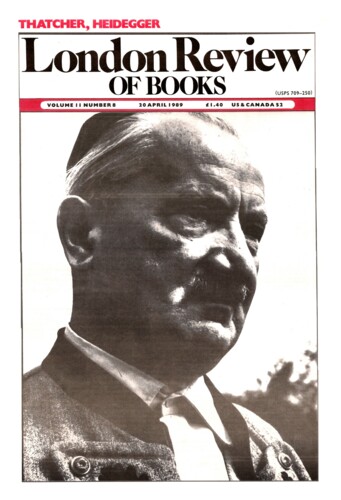Vanishings
Peter Swaab, 20 April 1989
Wordsworth’s poetry has been able to animate critical writing, relevantly, from several different points of view. Narratologists have discussed the gaps in his storytelling and the vulnerability of the selves that do the relating; historically-minded criticism has unearthed the contemporary writings with which Wordsworth’s interact, and also shown how far he was involved not only in the politics of poetry but in the politics of public affairs; textual criticism has uncovered an exceptionally rich store of newly published texts and variants, many of them representing his first and arguably best thoughts; deconstructionists have homed in on the paradox of a poetic mission which aims to realise the ‘sad incompetence of human speech’, while both deconstruction and psychoanalysis have been attuned to Wordsworth’s sense that crucial human insights are founded, not on achieved knowledge, but on moments of loss, absence and negation – the ‘Fallings from us, vanishings;/Blank misgivings’ of the ‘Immortality Ode’. This hospitality to critical approaches is in part a sign of the real amplitude of Wordsworth’s achievement. Though he was never the kind of philosophical poet Coleridge asked him to be, Wordsworth’s subject was no less than the whole of human society; as with such holist contemporaries as Coleridge and Hegel, his views on different topics lead into each other, presenting comparable vocabularies and linked concerns whether his immediate subject is the developing self or the revolutions of society.’

